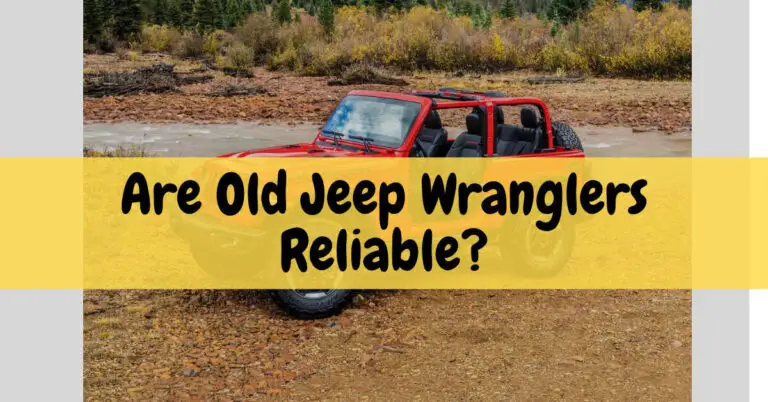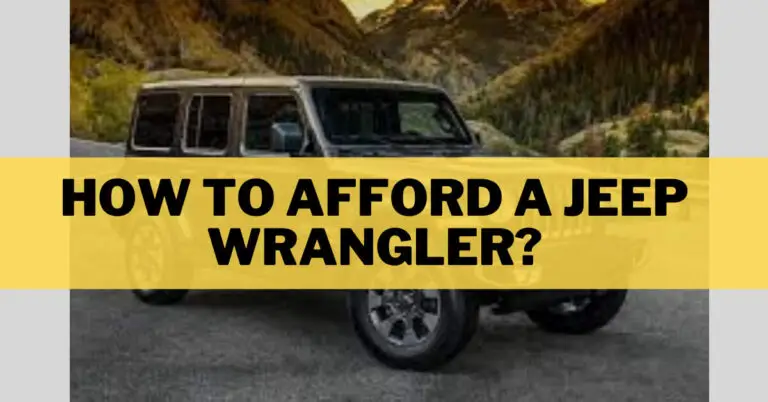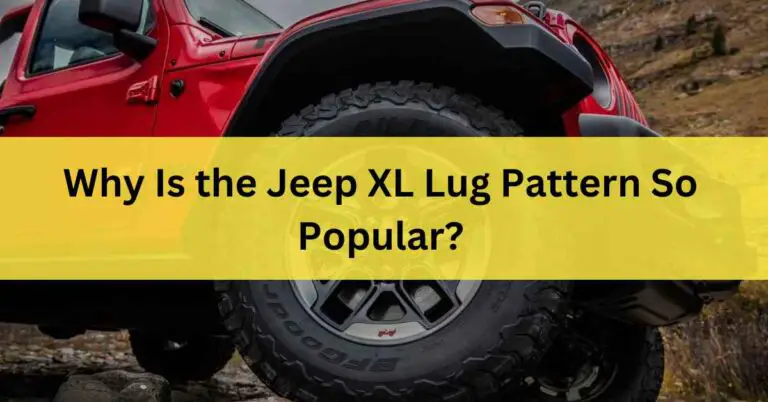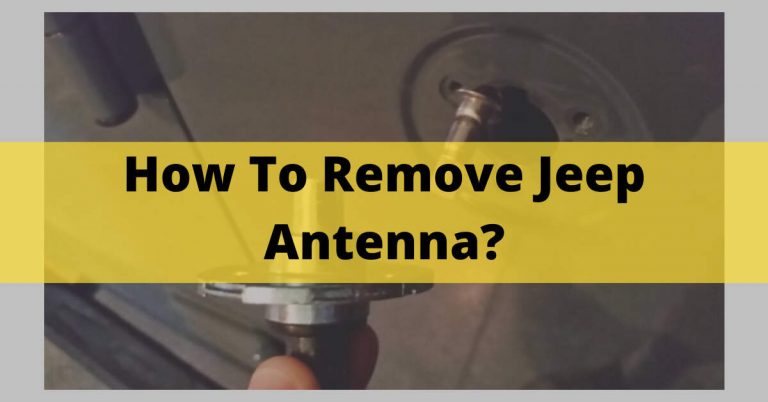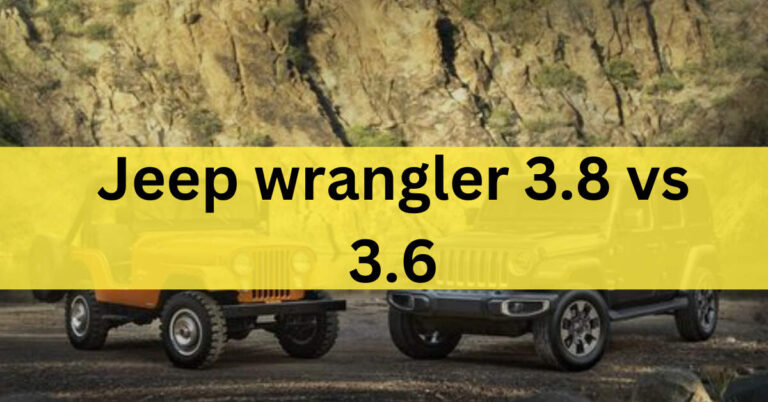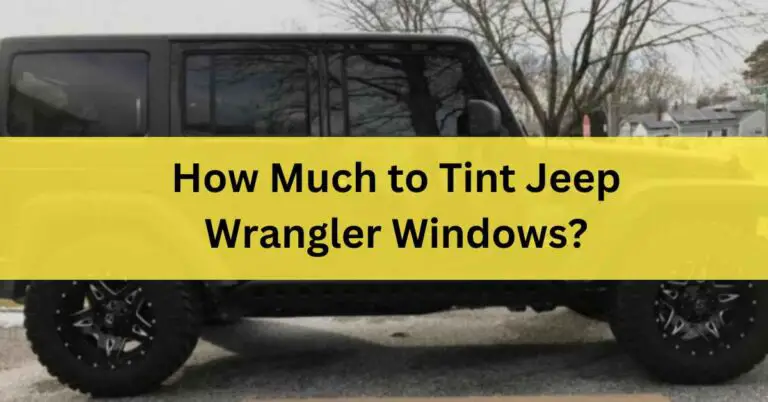Is It Better to Buy or Lease a Jeep Wrangler?
The Jeep Wrangler is an iconic and beloved vehicle known for its rugged design, off-road capabilities, and sense of adventure. Whether you’re an outdoor enthusiast or simply captivated by its timeless charm, the allure of owning a Jeep Wrangler is hard to resist.
However, before embarking on this thrilling journey, potential buyers must decide whether to buy or lease a Jeep Wrangler.
The answer to whether it is better to buy or lease a Jeep Wrangler depends on individual preferences, financial circumstances, and driving habits. Both options have their pros and cons, and what might be the best choice for one person may not be the ideal option for another.
Both options come with their own set of advantages and drawbacks. This article will explore the pros and cons of buying and leasing a Jeep Wrangler to help you make an informed decision.
Buying a Jeep Wrangler:
1. Long-term Investment:
Purchasing a Jeep Wrangler lets you own the vehicle outright once you’ve paid off the loan. Unlike leasing, there are no mileage restrictions or penalties for excessive wear and tear, providing the freedom to customize the vehicle as desired.
Buying also offers the possibility of a long-term investment, as the value of well-maintained Wranglers tends to hold up well over time.

2. Equity and Ownership:
When buying a Jeep Wrangler, you build equity in the vehicle with each payment made. This equity can be leveraged later if you sell or trade the Wrangler for a newer model or a different vehicle.
Additionally, as an owner, you are not bound by strict lease agreements, granting you the liberty to use the vehicle for an extended duration without concerns about contract limitations.
3. Lower Long-Term Costs:
While the initial down payment and monthly installments may be higher than a lease, the overall cost of ownership tends to be lower in the long run.
Once the loan is paid off, you can enjoy a period of payment-free ownership while continuing to use the vehicle for years.
Leasing a Jeep Wrangler:
1. Lower Monthly Payments:
Leasing a Jeep Wrangler typically involves lower monthly payments than buying one, making it an appealing option for those with limited budgets.
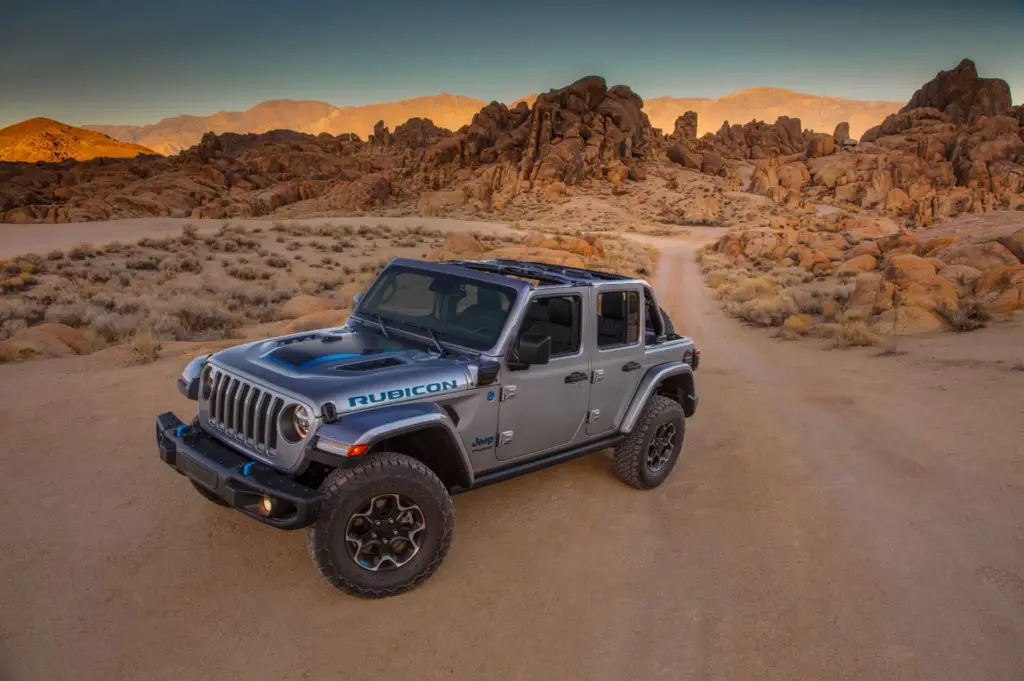
Since leases cover only the vehicle’s depreciation value during the lease period, monthly payments are more affordable, allowing individuals to drive a new Wrangler model at a fraction of the cost.
2. Access to the Latest Models:
Leasing enables drivers to experience the thrill of driving the latest Jeep Wrangler models every few years.
As lease terms typically last two to three years, lessees can stay up-to-date with the latest technology, safety features, and design upgrades without worrying about the depreciation of owning a vehicle.
3. Lower Maintenance Costs:
One of the significant advantages of leasing is that it typically covers the vehicle under the manufacturer’s warranty for the entire lease duration.
It means lessees can avoid unexpected repair costs, as the warranty often covers most repairs and maintenance/ additionally since the new vehicle is less likely to require extensive repairs during the lease period.
Considerations for Buying:
1. Higher Upfront Costs:
The main drawback of buying a Jeep Wrangler is the higher upfront costs. Buyers need to make a substantial down payment, and the monthly loan payments can be more significant compared to lease payments.
This might be a deterrent for individuals with limited funds or those seeking lower monthly expenses.
2. Depreciation:
While Jeeps, especially Wranglers, tend to retain their value well, they depreciate over time. As an owner, you bear the risk of potential market fluctuations, which could affect the vehicle’s resale value.
Although Jeep Wranglers tend to hold their value better than many other vehicles, depreciation is essential when making a long-term investment.
3. Long-Term Commitment:
Buying a Jeep Wrangler means committing to ownership for an extended period. If you prefer driving a new vehicle every few years or anticipate significant lifestyle changes in the near future, owning one might not be the most suitable option.
Considerations for Leasing:
1. Mileage Limitations:
Mileage caps are common in lease agreements and typically range from 10,000 to 15,000 miles annually.
Exceeding this limit can result in costly overage fees at the end of the lease term. If you anticipate driving extensively or taking frequent road trips, leasing might not be the best fit.
2. No Equity:
Unlike buying, leasing does not build equity in the vehicle. At the end of the lease, the lessee returns the vehicle to the dealership and walks away with no residual value.
This lack of equity can be seen as a disadvantage compared to ownership, where the vehicle remains an asset that can be sold or traded.
3. Potential Penalties:
Lease agreements often come with strict guidelines for vehicle use and maintenance. Lessees must return the vehicle in good condition, adhering to specific wear and tear standards.
Failure to comply with these guidelines could lead to penalties at the end of the lease term.
Frequently Asked Questions:
Is leasing a Jeep Wrangler more affordable than buying one?
Leasing a Jeep Wrangler often involves lower monthly payments compared to buying one. Since leases cover only the vehicle’s depreciation value during the lease period, monthly payments can be more affordable, making it an appealing option for those with limited budgets.
Will I have more flexibility with a purchased Jeep Wrangler than a leased one?
Yes, purchasing a Jeep Wrangler offers more flexibility than leasing. When you buy a Jeep, you own the vehicle outright once you’ve paid off the loan.
There are no mileage restrictions or penalties for excessive wear and tear, allowing you to customize and use the vehicle for as long as you desire.
Can I drive the latest Jeep Wrangler models if I choose to buy instead of lease?
Yes, you can drive the latest Jeep Wrangler models if you choose to buy. However, upgrading to the latest models will require selling or trading in your current vehicle, whereas leasing allows you to switch to a new model every few years easily.
Can I negotiate the purchase price of a Jeep Wrangler if I decide to lease it instead?
Yes, you can negotiate the purchase price of a Jeep Wrangler even if you decide to lease it. The negotiated price will influence the monthly lease payments based on the vehicle’s depreciation value during the lease term. Lowering the purchase price can result in lower lease payments.
Conclusion
Choosing between buying and leasing a Jeep Wrangler is a highly individual decision that depends on one’s priorities, financial situation, and driving habits. Buying offers the benefits of long-term ownership, equity building, and potentially lower long-term costs.
On the other hand, leasing provides access to the latest models, lower monthly payments, and lower maintenance costs. Aspiring Jeep Wrangler owners should carefully evaluate their preferences and lifestyle before deciding.
Whether they opt for ownership or leasing, the sense of freedom and adventure of driving a Jeep Wrangler remains unparalleled.

